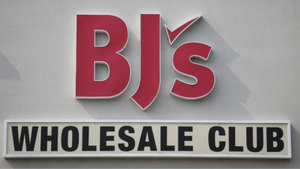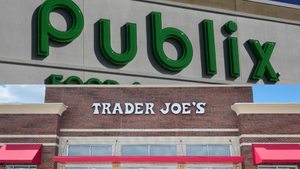DELIVERING MOREDELIVERING MORE
Distribution is still the heart of the drug wholesaling business, but it is no longer its soul.Wholesalers today are under pressure to compete in a consolidated marketplace. Managed care is putting the focus on cost reduction, and consequently supermarket pharmacies' profits are being squeezed. The need has arisen to bridge the gap from simply delivering the goods to helping pharmacies remain profitable
March 10, 1997
PETER MALBIN
Distribution is still the heart of the drug wholesaling business, but it is no longer its soul.
Wholesalers today are under pressure to compete in a consolidated marketplace. Managed care is putting the focus on cost reduction, and consequently supermarket pharmacies' profits are being squeezed. The need has arisen to bridge the gap from simply delivering the goods to helping pharmacies remain profitable entities.
"The nature of the business is driving wholesalers to provide innovative value to their customers. They are no longer just the mailman; they are becoming more and more involved in helping their customers become decision makers," said Bruce Kneeland, vice president of marketing and communications for the National Wholesale Druggists Association, Reston, Va. The NWDA kicks off its annual marketing conference this week, March 12 to 14, in San Antonio, where members and manufacturers will examine the vital links being provided to community pharmacies.
More wholesalers, therefore, are crossing the bridge with a variety of value-added services that are designed to increase store traffic and profitability, and improve patient care.
"Wholesalers have transitioned from the distribution function to the asset-management function," noted Dan Ramirez, vice president of pharmacy for Wakefern Food Corp., Elizabeth, N.J.
"Wholesalers are a lot more involved in technology. They are even facilitating participation in third-party networks. They are offering to relieve the wait-time for receivables -- you pay a premium for that," he said.
Patient-compliance programs are another of the value-added services wholesalers are providing to pharmacies.
Today, the drug wholesale business is growing robustly. Manufacturer sales of prescription drugs to food stores with pharmacies rose 19.6% last year, according to statistics from IMS America, Totowa, N.J.
While sales are healthy in drug wholesaling, there are fewer players involved.
"A lot of smaller, regional wholesalers have gone away," said Ramirez. "The majority of players left are big. Because of the consolidation, there will be even fiercer competition between the big players."
Those big players include McKesson Drug Co.., San Francisco; Bergen Brunswig, Los Angeles; and Cardinal Health, Dublin, Ohio, who together now control more than 50% of total wholesale drug industry sales, according to NWDA.
"Consolidation has not dramatically impacted our business," said Glenn Sievert, pharmacy coordinator for Spartan Stores, Grand Rapids, Mich. "I do believe it has made the major wholesalers, as well as regional players, more competitive."
"I would best describe our relationship with our pharmaceutical wholesaler [Bergen Brunswig] as a partnership where both parties are involved with helping the other succeed," Sievert said.
In their effort to help pharmacies prosper, wholesalers are supplying innovative software systems. "The hottest area of interest is electronic transmission of prescriptions," said Kneeland of NWDA.
McKesson says OmniLink, its centralized pharmacy system application, makes pharmacies more efficient and profitable. It has been on the market for a little over one year.
There are several supermarket pharmacies testing OmniLink in some of their stores, Jansen said, but he declined to identify them, except to say they include large chains based in the Midwest and the South.
Access to the system was recently expanded under a new agreement with National Data Corp., which will support the system through its national health-care network. NDC's network services 90% of U.S. pharmacies and 3 million health care claims daily.
Among its features, OmniLink permits centralized editing control for cash and third-party prescriptions, allows reporting of compliance, captures patient information, consolidates reporting capabilities and offers real-time updates on average wholesale pricing and acquisition cost.
OmniLink costs retail pharmacies between eight and 11 cents per third-party transaction, according to McKesson.
"We have demonstrated between 0.5% and 1.0% savings on gross margins to pharmacies where OmniLink is live -- that is the average," Jansen said.
"The money saving is in the real-time pricing," said a pharmacy director for a Louisiana-based supermarket chain.
OmniLink intercepts the transaction before it reaches the claims processor. It edits it, checks it and compares it to make sure the transaction is complete and accurate.
Conceptually, OmniLink appears to be a valid program, Wakefern's Ramirez said. Wakefern is not a McKesson customer. "I know that Bergen Brunswig and Cardinal Health are working on programs like that, but I don't think they have been published yet."
"We deal with AmeriSource, [Valley Forge, Pa.] They offer the disease-state program and a central system to monitor store purchases, inventory and stock levels. We've been approached by multiple vendors that have interactive voice response systems -- refill systems, where a patient could call in with their refill number. The information flows automatically into our computer system," said John Ferrara, director of pharmacy services for Pathmark Stores, Woodbridge, N.J.
Another value-added service that supermarket chains, such as Meijer, Grand Rapids, Mich., provide to their shoppers is Healthtouch, supplied by Cardinal Health. Healthtouch is a stand-alone kiosk containing health education and information. A touch screen prompts users through a database that includes information about health and nutrition, disease and illnesses and prescription and over-the-counter medications. The information comes from organizations such as the American Heart Association and the American Cancer Society.
Cardinal Health also provides CHOICE, an order inventory management system, that also prints leaflets for customers on their medications.
"Wholesalers have many new services. But they also charge for them," said the pharmacy director for the Louisiana-based supermarket chain. "Each company has to decide for themselves whether it is cost effective for them to accept the services provided. When most wholesalers bring something to the table, there is a surcharge on whatever feature they are presenting."
About the Author
You May Also Like




